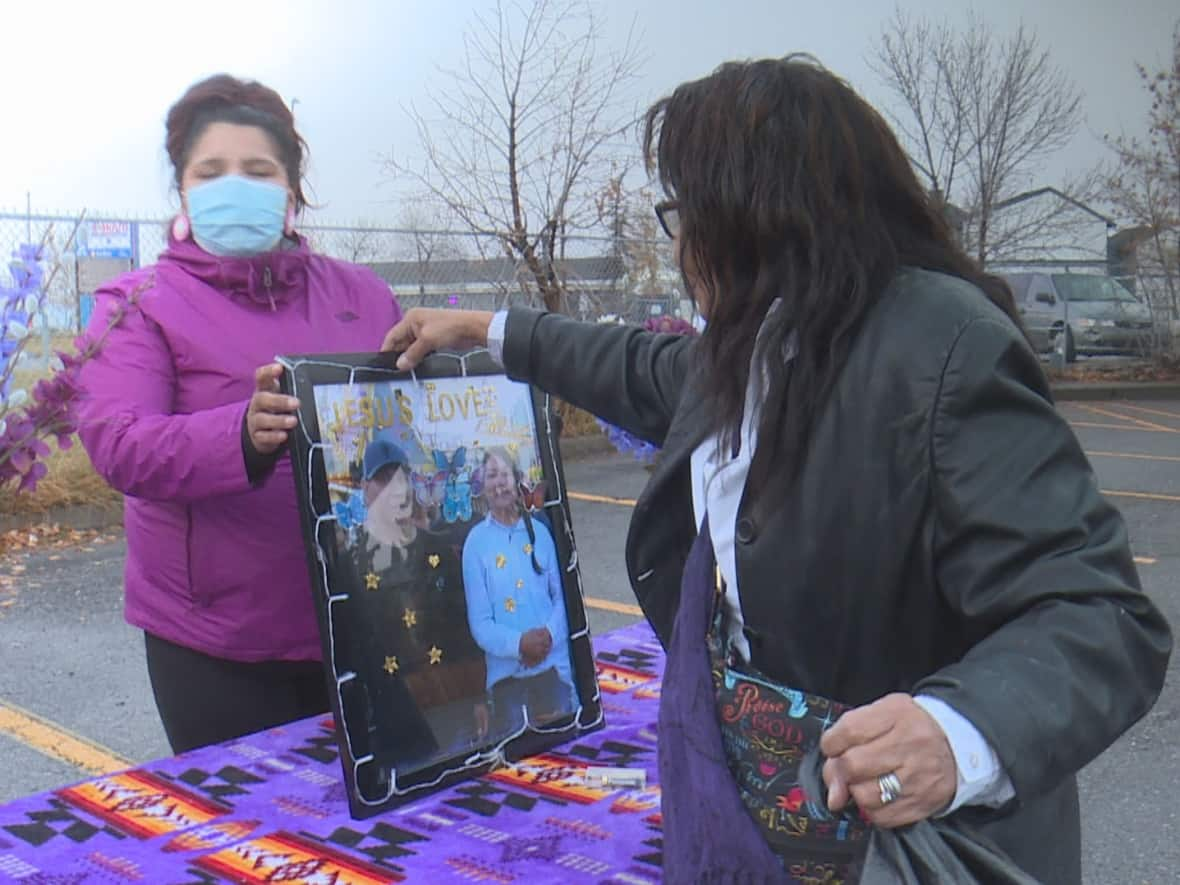Memorial held for Indigenous man who died while in Calgary police custody a year ago

Friends and family of Sonny Crazy Bull gathered in Calgary Saturday evening to hold a memorial for the man who died while in police custody a year ago.
Crazy Bull's death is still being investigated by the Alberta Serious Incident Response Team (ASIRT), the province's police oversight agency. Those close to him say they're desperate to know what happened.
"It's been very painful," said his mother, Shelley Crazy Bull, describing the year since her son's death.
Saturday's vigil was held at the Marlborough CTrain station, where Crazy Bull was arrested on Oct. 23, 2020.
Crazy Bull, a Blackfoot member of the Blood Tribe, was arrested for possession of an airsoft gun, but he ended up being charged with breach-related offences and later died.
At the time, police stated that during a routine cell check 42-year-old was eating his meal, but by the next check he was unresponsive.
There have been no updates from ASIRT, which investigates incidents where serious injury or death may have been caused by police, as well as allegations of misconduct.
"There is a lot that's not said," said Tristan Provost, Crazy Bull's former common law partner.
"I do want to know what happened. It's just not fair."
Michelle Robinson, who helped organize the memorial, thinks there should be answers by now.
The delay in information about Crazy Bull's death is just one part of the problem, she said. There should be more accountability and transparency in the justice system after the National Inquiry into Missing and Murdered Indigenous Women and Girls, and the calls to action from the Truth and Reconciliation Commission.
"It speaks volumes of the issues of justice that Indigenous face compared to non-Indigenous," said Robinson.


